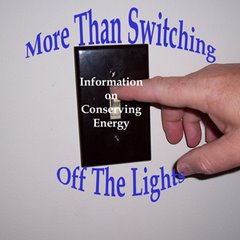By now you have probably seen the email message circulating around suggesting that we all do a one-day gas boycott.
The main text of the email is:
"Do not buy gas on May 15. In April 1997, there was a 'gas out' conducted nationwide in protest of gas prices. Gasoline dropped 30 cents a gallon overnight.
There are 73,000,000-plus Americans currently on the Internet network, and the average car takes about $30 to $50 to fill up. If all users did not go to the pump on the 15th, it would take $2,292,000,000 out of the rich oil company’s pockets for just one day. So please do not go to the gas station on May 15, and let’s try to put a dent in the Middle Eastern oil industry for at least one day."
There are many items in the email that is in fact total falsehood and others that is misstating information.
There may have been a gas boycott in April of 1997, but gas prices did not drop. At the beginning of April 1997 the average gas price was 1.248 per gallon. At the end of the month it was 1.24 per gallon. Hardly any drop at all.
Consider this, if it would have dropped by 30 cents in 1997 it would have been about a 25% drop in price. At current prices that would mean for the gas price to drop the same amount it would have to drop from nearly 3 dollars a gallon to 2 dollars a gallon.
Numbers indicated in the message just don’t add up. It’s estimated that there are 200 million Internet users not 73 Million. Many of those are young people who don’t have licenses to drive or a vehicle to pump gas into. Even if each of them did have a car, it’s unlikely that they would need to add gas on that day.
If it was the 2.2 billion dollars pumped per day, a better estimate would be 1.3 billion, the total price of a gallon of gas is spread out between oil producers, pipeline operators, refiners, wholesalers, truckers, retailers and governmental taxes. The biggest chunk, about 53%, comes from the cost of crude oil most of which comes from foreign producers. It’s estimated 19% goes to taxes.
There’s also a version of the email that say; “full your car either on the day before or day after”. That in it self would make the boycott useless since the weekly consumption would remain the same.
If you feel strongly about boycotting the gas pumps that day, there’s no reason not to. But it’s not a wise idea to believe that it will make much of a difference. The best thing would be to devise a plan to cut your consumption and need on gas by 10%. That would show 30 cents a gallon decrease to you.
Following these simple items can do it even without replacing your vehicle with one with better gas mileage:
1. Don’t drive if you don’t have to. If you are close enough to your destination to walk or ride a bike. Not only will it save on use of the gas, but also you will be getting exercise.
2. Combine errands. Plan the trip before you even start. Plan the stops in the most efficient route. This not only saves money on gas, but also can save time.
3. Use the air conditioner smartly. When traveling at speeds over 40 miles an hour you actually use more fuel by having your windows open, then using the air conditioner. In Stop and Go traffic though it’s more fuel efficient to turn the air condition off and open the windows.
4. Keep the vehicle well maintained. Under inflated tires can decrease gas mileage. Many newer tires may look properly inflated, but still be under inflated. Seasonal temperature changes can also change the air pressure of the tire. You will also want to keep the other parts of the vehicle well maintained such as keeping the air filter clean and regularly changing the oil.
5. Lighten the load. Each extra 100 pounds can decrease the gas mileage by 2%. Don’t leave the golf clubs in the trunk unless you are planning on using them.
6. Don’t unnecessary idle the vehicle. A non-moving vehicle gets 0 miles to the gallon and starting a vehicle uses no more gas than one sitting idle for less than 10 seconds. The best way to warm up a vehicle is by driving it. You don’t need to have it idling to warm up, even in cold weather.
Digg this story
© 2007 Steven G. Atkinson – All Rights Reserved
Subscribe to:
Post Comments (Atom)

No comments:
Post a Comment